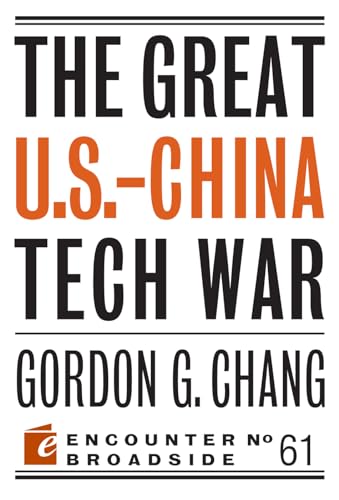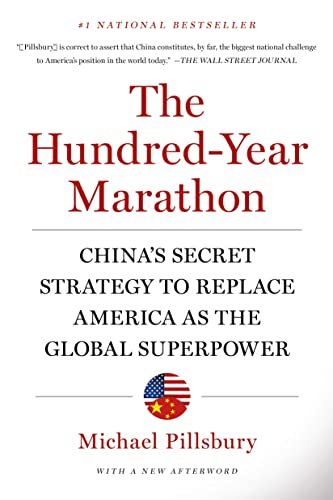President Trump learnt his Number One Foreign Policy Doctrine from history: never allow a Chino-Russian alliance to take shape! A look on the world's map shows that whoever holds sway over the Eurasian landmass, strategically rules the world. Under Biden, this has come to pass. So, what does it all mean? We take a perspective.
Jan. 8, 2021 Caspian Report: Unpacking the China-Russia alliance.
China, that is the CCP, has an unspoken view that an economically weak but militarily aggressive Russia suits China best.
Russia is no economic miracle like China and it has many fault lines. One is the stagnating domestic economy. Next is its sparsely populated Far East that also leaves its lengthy border with China relatively secure, from a Chinese perspective. These both make China very happy, especially from the perspective of any danger from the north. This is why China-Russia relations look promising in the short to medium term. Not only is Western pressure on Ukraine pushing both countries together, but Russia’s military operations in Belarus and on Ukrainian border also draw attention away from Beijing.
Balance of power
There are definitely power struggles between China and Russia as nations, but assertive military moves from Moscow also keep the relationship with Beijing from becoming too unbalanced.
A good example of this is Russia’s recent intervention in Kazakhstan through the Collective Security Treaty Organization (CSTO).
The Russian move helped stabilize the situation in the country, which was also Beijing’s main concern. And unlike what the West has been screaming that Russia will never leave Kazakhstan, they did, even before the week was out. Despite China sometimes competing with Russia in Central Asia, Beijing deferred to the Kremlin’s military capabilities and let its interests take precedence.
The Russian move helped stabilize the situation in the country, which was also Beijing’s main concern. And unlike what the West has been screaming that Russia will never leave Kazakhstan, they did, even before the week was out. Despite China sometimes competing with Russia in Central Asia, Beijing deferred to the Kremlin’s military capabilities and let its interests take precedence.
Trying to interfere in any country using its military has not been a rosy prospect for China, be it their adventures in Vietnam in the seventies or their adventures against India last year. They have returned with a bloody nose.
The prospect of a joint Chinese-Russian front is a strategic planner’s nightmare, which is why it is in both Beijing’s and the Kremlin’s interest to highlight that they have the best relations in over 300 years. For now, the common goal to push back against the United States has kept a firm lid on their relationship, but underneath frictions are brewing.
The prospect of a joint Chinese-Russian front is a strategic planner’s nightmare, which is why it is in both Beijing’s and the Kremlin’s interest to highlight that they have the best relations in over 300 years. For now, the common goal to push back against the United States has kept a firm lid on their relationship, but underneath frictions are brewing.
Window of opportunity
This is actually now the best time for them both. The USA is at its weakest under Biden, despite all his banging the war drums on Ukraine. Both Russia and China know he will do nothing; Biden is a lame duck president, the whole world knows it.
While Putin and Xi are eager to showcase to the world their warm ties and how their countries are growing closer, President Putin even toasted the Chairman of the CCP on his birthday in 2019 while wearing matching outfits! But the optics mask a deep distrust that isn’t going away.
Suspicions
In June 2020, a retired Russian scientist was detained on charges of passing Russian submarine-detection technology secrets to China. Suspicion of Chinese espionage within Russia’s defense industry runs deep and has a storied history.
Chinese and Russians have found themselves at loggerheads, especially on the periphery. Russia’s regions are keeping a close eye on Chinese businesses and the CCP's economic expansion programs as well as nationalistic outbursts, such as calls from Chinese Weibo users to reclaim parts of Russia’s Far East. Ethnic tensions still exist on both sides of the border but is well kept out of the state-media.
Belt and Road
The CCP plans long term, having Russia on its side and adapting and biding its time in the short and medium term.
China still does not recognize Russia’s 2014 annexation of Crimea. But China did adapt the Belt and Road Initiative (BRI) to better integrate with Russia.
Putin's action in Ukraine must unnerve China to some degree, causing disruptions to the BRI.
An estimated 85 percent of Chinese rail traffic to Europe transits through Belarus, which could be jeopardized by hostilities in the region.
Ukraine was once seen as one of the anchors of the BRI which Beijing has not given up, with China being Ukraine's largest trading partner.
The CCP must cooperate with Russia, but that doesn’t mean they have forgotten the long-term frictions ahead.
Regardless of the red carpet welcome he’s currently receiving in China, Putin would be well advised to keep an eye on all these considerations.
By Rajesh ChaudharyTags: Globalism, War & conflict, Economy money & trade, Politics
Related


